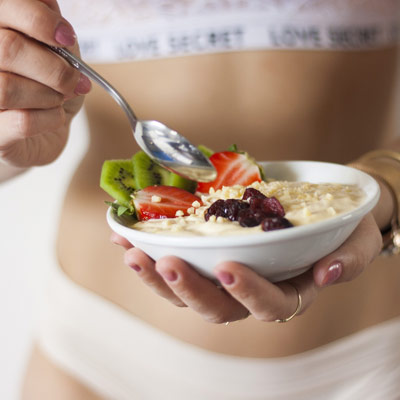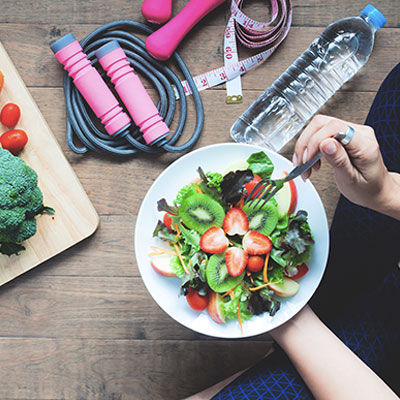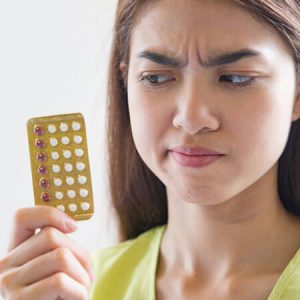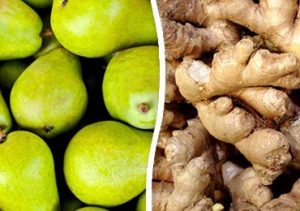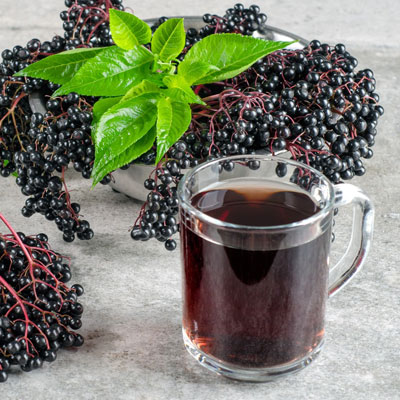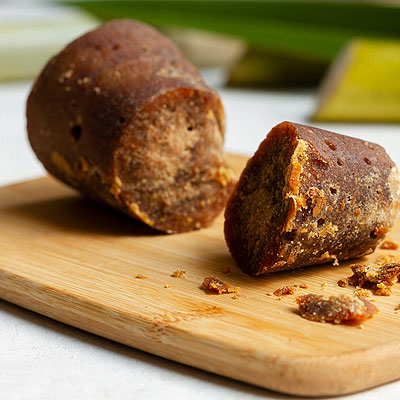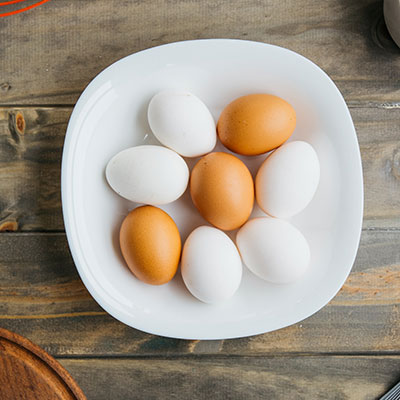Do you know that a balanced infertility diet can help increase fertility in both men and women?
With modern lifestyle diseases, infertility and complications in conception are on the constant rise. Unfortunately, infertility is one of the top issues faced by modern couples these days. It is a fact that genetic issues and a toxic lifestyle are great contributors to infertility. However, diet also plays an important role in increasing fertility. Recently, there has been much craze about fertility diets or fertility-related foods.
Is it true that certain foods can really help boost your fertility?
While many may find the concept of a fertility diet unfamiliar, it is crucial to nourish your body with the right quality and quantity when attempting to conceive. According to several detailed studies, dietary insufficiency is the major root cause of weakening the efficiency of the reproductive system. So, to increase the chances of getting pregnant in amidst all the complications faced, read through these super-healthy and nutritious food lists to support your overall health and optimize fertility rates! If you follow the tips we shared in this article, you will also learn how to boost fertility in males.
Infertility Diet: Best Foods to Eat to Boost Fertility
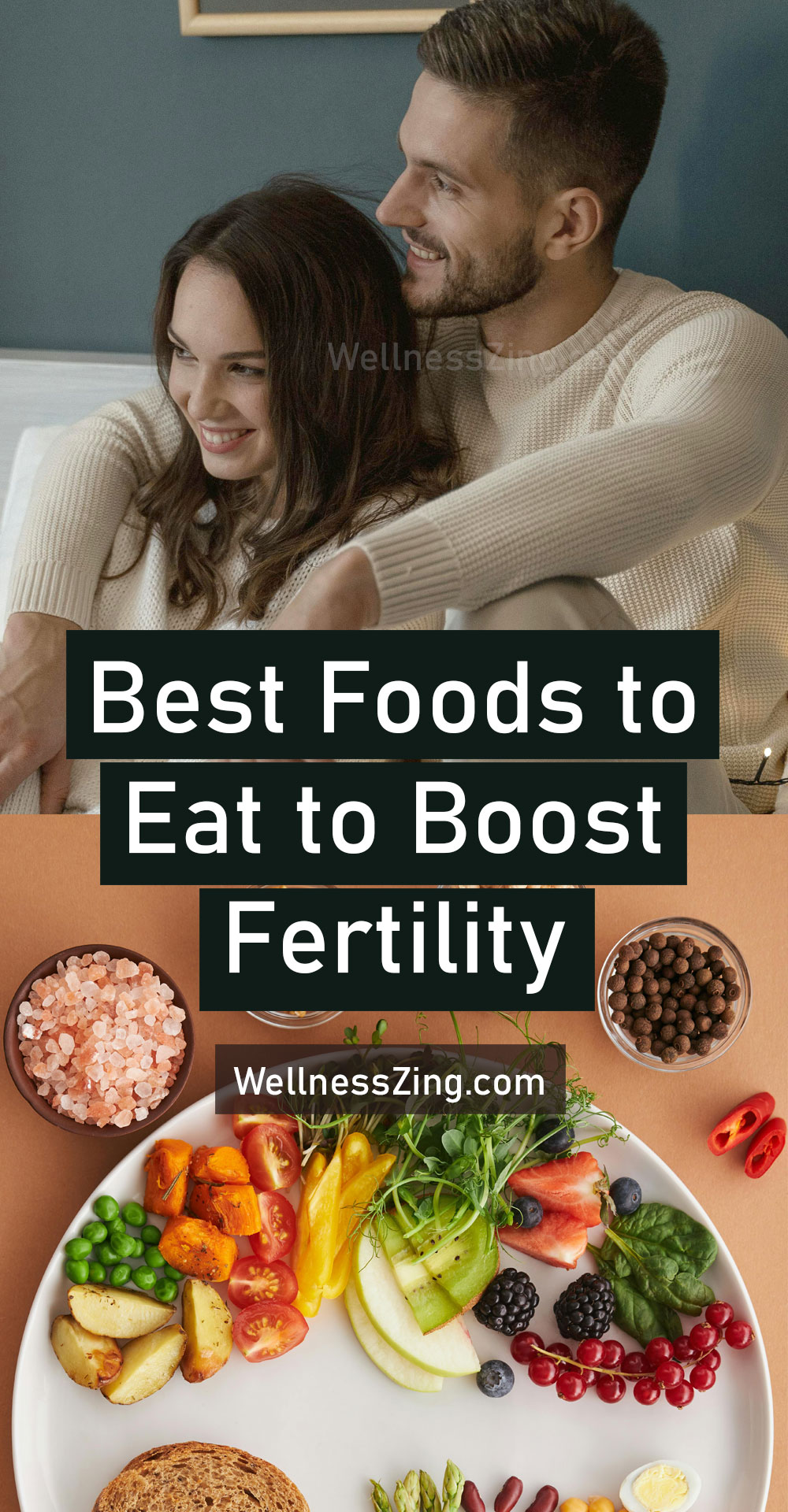
1. Lentils and Beans
Fiber and folate are loaded in them, which play a very crucial role in maintaining healthy hormonal balance. Polyamine Spermidine helps the sperm fertilize the egg, and lentils have a high amount of it. Combining lentils and beans together increases the protein content of the food drastically, which helps in promoting healthy ovulation. Attaining 5% of the calories in your diet from vegetable protein can reduce the risk of anovulation or infertility by 50% in comparison to the red meat consumed in your daily diet.
Replace at least one meat meal of the day with a bean or lentil-based meal, and instead of adding cheese or meat to your salads, throw some beans. For the breakfast menu, baked beans on multigrain toast or any other healthy base can be a great option too.
2. Dairy products (full fat)
An infertility diet cannot be complete without dairy products. Dairy is rich in essential fat and fat-soluble vitamins, namely A, D, E, K, and K2, which makes it a great food choice to opt for fertility and pregnancy phases. It was found that fewer ovulation problems were experienced by women who consumed more full-fat dairy products in their daily diet, according to the Harvard study. The full-fat dairy products can include different kinds of cheeses (especially the cream cheese), ice creams, and whole milk.
You can consume them daily without fail if you try to swap skim milk and its products with full-fat dairy products, like replacing the low-fat yogurt with full-fat yogurt. To treat yourself, have an occasional serving of full-fat ice cream as well! However, make sure to limit yourself with just 2-3 servings of ice cream in a week.
3. Quinoa
Not only carb-free, quinoa is an overall amazing whole grain with the perfect blend of zinc, protein, and folic acid. It helps in maintaining healthy fetal growth once the pregnancy sets in and also offers robust prenatal protection support. Without containing any potential harmful additives, quinoa efficiently provides all the essential amino acids that meat products offer. It is gluten-free, low-glycemic index whole grain, which fits perfectly in the fertility meal plan and facilitates the digestive system by satisfying hunger for a longer period of time.
A sudden spike in blood sugar levels can cause the insulin levels to fluctuate, potentially disrupting the hormonal balance. As we know that diabetes can be hazardous for pregnancy and fertility rates, take care of the excessive fluctuation of blood sugar and the insulin levels by eating this superfood.
You can blend quinoa in any of your regular beverages and prepare a rich natural drink to energize yourself. Use it instead of oatmeal on certain days, and make sure to add nuts, seeds, and fruits as toppings. Sprinkling quinoa to your salads and incorporating them into desserts can enhance the nutrition of the basic standard recipes. Quinoa fritters and healthy soups are turning out to be an internet sensation nowadays, and moreover, rice in your meal can be replaced with quinoa too! Add seasonal vegetables to it, bringing a fresh twist.
4. Asparagus
Providing incredible benefits, it is considered to be a powerhouse food, including for those trying to get pregnant. Over 60% of your daily recommended folic acid requirement and daily Vitamin-K value is fulfilled by eating one cup of boiled asparagus every day. More than 20% of vitamins, namely A, B, and C, are present in asparagus to strongly strengthen your reproductive health. Zinc and selenium in substantial amounts are also present, which helps in increasing the sperm count and testosterone levels in men and should definitely be included in their diet.
You can have asparagus salad or can add in large amounts to the salad plate. Grill them and have as a side salad or bake it as snacks with veggies. Simple appetizing recipes can be prepared with asparagus as the main ingredient, like whole soups, traditional dressings, and curries.
5. Citrus fruits
Vitamin C-packed fruits or citrus fruits like oranges, grapefruit, sweet lime, lemon, kiwi, pomegranates, etc. contain polyamine putrescine, which is directly associated with enhancing the potential of egg formation and semen health. Ovulation is regulated while creating a healthy environment for eggs with the help of B vitamins that are power packed in these juicy fruits. As we know that citrus fruits help in providing major antioxidants, which are responsible for improving the body’s immunity to prevent it from several illnesses, the diet of both men and women should consist of them.
You can add orange slices or grapes to your fruit salad and smoothies. Eat them as midmorning or evening snacks and blend them into juices to have them for breakfast. This kicks your metabolism and prepares you for the entire day. Try avoiding cooking these fruits as it leads to the loss of vitamin C, and preferably eat them raw.
However, grapefruit juice is found to be dangerous if it interacts with some medications and can cause health hazards. So, if you are facing medical issues, make sure to consult your doctor first before consuming it.
6. Berries
Different types of berries form an integral part of an infertility diet. With anti-inflammatory phytonutrients and natural antioxidants, raspberries, blueberries, and cranberries help in aiding fertility in both genders. They are found to be rich sources of fiber, vitamin C, and folate, which not only strengthen fetal development but also maintain a healthy weight during pregnancy. Berries are rich in soluble fiber content, which helps in weight maintenance and increases the chance of conceiving.
Being rich in nutrients, it helps boost reproductive health in the long run. Blueberries contain a powerful phytonutrient known as anthocyanin. It is known to treat infertility by keeping sperm healthy and strong. Towards the uterus having easy transportation of the embryo, it helps in clearing the fallopian tubes. For the process of conception, anthocyanin also helps in meeting eggs and sperm.
These are easy to grab and eat fruits! Just pop them in your mouth, taking a handful while you are doing any other chores. Nourishing smoothies can be prepared by blending them or using them as seasonings. Make your yogurt, milk, and other dairy products sweet with berries without actually adding sugar or harmful sweeteners. Pancakes, crepes, and waffles can all be topped with strawberries, mulberries, or berries of different kinds to soothe your sweet buds.
However, always be vigilant towards the recipes in which you add berries. If there is loaded sugar in the cakes, cookies, or other desserts prepared with berries, that might adversely affect your health and weight balance.
7. Tomatoes
Extremely high in the nutrient lycopene, which is a powerful antioxidant, helps immensely in the onset of pregnancy. Its uses and potential in improving male fertility have been studied extensively, which proves that eating them daily strengthens your reproductive system. According to research, supplementation of lycopene is considered to be a potential treatment for the issues of male infertility as it reduces the count of abnormal sperm. For 8–12 months, having 4–8 mg of lycopene per day improves semen health, sperm swimming speed, and pregnancy rates.
In women, lycopene helps in preventing the formation of endometriosis, which is a known cause for women to suffer from infertility. Not only this, the iron content available in tomatoes forms an important component of hemoglobin, which is found to be beneficial for blood health and decreases the risk of infertility in women.
Eat tomato salads and make sure to layer your breads with tomato slices. Make tomato puree or sauce at home to add it in your curries to uplift its colour, taste, and nutrition. Try avoiding preserved or canned tomatoes and prefer the fresh ones to achieve the highest amounts of antioxidants from them. In fact, to every snack or major meal recipe, fresh tomatoes can be added by slicing or chopping them.
8. Dark green leafy vegetables
To fulfil the requirement of essential nutrients in the infertility diet, we must include the green leafy vegetables in it. Prenatal essential nutrients, namely folate, iron, and calcium, are sufficiently present in kale, spinach, and Swiss chard, which also helps in protecting against birth defects. Green leafy vegetables are extremely nutritious in general, but while helping you get pregnant, they contribute even more. B vitamins are studied to be in high amounts in green leafy veggies, which are researched to be a facilitator to increased ovulation. Antioxidants are on the higher side in them, which helps the body’s cells repair and reduce inflammation.
You should eat as much greens as you can! Eat them raw, blanched, sautéed, or steamed. Make curries out of them to have it as side dishes with suitable breads. Baked kale chips can be a wonderful snack, and the spinach can be added to smoothies or soups to boost fertility. Each day, make sure to have 2-3 cups of green leafy vegetables added to your diet!
9. Beets
They are viewed as an underestimated vegetable but are studied to extensively improve the blood flow to the uterus while helping in embryo implantation, and it makes a strong reason to definitely add it to your food list if you are trying to conceive. Containing nitric oxide, it helps in blood vessel dilating and allowing oxygenated blood supply or flow to the uterus, and that is why the embryo implantation into the uterus can be improved with this vegetable. Also, age-related infertility is known to combat the fantastic source of the antioxidant named resveratrol present in beetroots.
You can have them just like any other vegetable by preparing curries or by making raw salads. They are generally grated to add as toppings to salads or other main course dishes.
Avoid pickled or canned beetroots and rather quarter small, fresh ones tossed with fresh herbs. Greek yogurt blended with beetroot can make a healthy dip, while grated beet can add colour and flavor to coleslaw. Drinking beetroot juice is the best way to have this vegetable, and the nutrients are also rapidly absorbed by the body.
10. Oysters
Though these are not predominantly consumed by all the cultures, they are low in calories, where 6 raw oysters provide only 139 calories in total. They impart the most important reproductive minerals and vitamins, including:
- Vitamin B12 (408% of the daily recommended amounts)
- Zinc (188% of the daily recommended amounts)
- Selenium (187% of the daily recommended amounts)
- Iron (43% of the daily recommended amounts)
Oysters are found to be a great source for fertility as they are packed with sufficient amounts of zinc, which leads to the production of good-quality eggs and also boosts male fertility by increasing the motility and volume of sperm.
You can add oysters and other safe sea foods to your diet in several ways. Pasta and noodle dishes can be prepared by adding cooked oysters to them. Along with their shells, they can be cooked and topped with fresh herbs. Different soups and stews can be prepared with oysters in them. Enjoy these nutritious shells as side dishes by roasting, steaming, or grilling them.
11. Egg yolks
Yolks are whole foods, or “nature’s multivitamins,” which contain almost all of the egg’s nutrients. Omega-3 fatty acids, namely DHA & EPA, and the fat-soluble vitamins, namely A, D, E, & K, are boosted by egg yolks, which pave the way to improving fertility. Eggs are considered to be an inexpensive source of first-class proteins, which help to build tissues and repair tear and wear of the body. The risks of birth defects are reduced with the help of choline available in eggs in considerable amounts. Do you know what all an egg from pasture-raised chicken contains?
- Available vitamin B12
- Essential amino acids
- Natural Choline is important for your nervous and cardiovascular systems
- Lubein to maintain healthy eyes
- Magnesium and zinc for a healthy immune system
- Proteins for the maintenance of body tissues, skin, muscles, and internal organs.
All these nutrients not only boost fertility but also facilitate an overall positive health index. They act as major components for hormones and the immune system.
Avoid the recent trend of just having egg whites, removing the yolk, or the most nutritious part. You can add egg yolks to your diet in a lot of ways where they can be scrambled, boiled, poached, fried, or served with green veggies. Omelets, bakery batters or dough, toasts, and curries can all be innovatively prepared with egg yolk as the main ingredient and can be relished at any meal of the day. Remember to not overcook yolks and to only cook them lightly, as the heat might damage the perishable nutrients available in them.
12. Salmon
It is known that fertility in men and women is boosted with the help of essential fatty acids & Omega-3, and salmon is considered to be a superfood amongst the list of fertility foods. Salmon contains Vitamin D and Selenium in large amounts, where Selenium is essential for healthy sperm maintenance and Vitamin D, which reduces the risk of fertility in both genders. In fact, one of the best ingredients to provide this crucial vitamin in considerable amounts is salmon. Around 97% of the daily recommended value of vitamin D is available in just 3 ounces of smoked salmon.
You can add salmon to your daily meals in the healthiest forms, like grilling, poaching, baking, or smoking. All these cooking methods do not require any addition of extra fat and can be a perfect pick-up option for any meal of the day, including snacks. Poached salmon can be a refreshing summer lunch, whereas baked salmon filets and steaks are tasty and filling meals.
13. Cheeses
Different cheeses that are mature, like parmesan, aged cheddar, and manchego, are known to improve sperm health as they are high in polyamines, the proteins that are found in both plant and animal products. They also occur naturally in humans. Being particularly rich in polyamine putrescine, which plays a major role in the reproductive system, is also known as per research to improve egg health. While you want a boost to fertility, high-fat foods are actually considered to be the preferred options, so do not hesitate consuming them. Cheeses are rich in calcium, vitamin D, and probiotics, which improve ovulation health and support the immune system. They can also help you achieve a more precise ovulation cycle.
You can sprinkle these cheeses on top of nuts or snacks that you prepare. Savory bakery products taste great with cheese spread on top. Just be very conscious about the portion sizes while adding them to your diet, as they are packed with calories and saturated fat too. Eat mindfully.
14. Sunflower seeds
Vitamin E-enriched unsalted and roasted sunflower seed kernels are proven to be an essential nutrient in boosting the sperm count and motility. Jam-packed with selenium, folate, and other essential minerals, they greatly contribute to both male and female fertility. Being a good source of Omega-3 and 6 fatty acids, they regulate the healthy fats of the body.
You can either have it as a great snack on its own or incorporate it into your favourite meals. Sprinkle them on your regular salad, use it as a substitution for peanut butter on toasts, or add them to your trail mix. To add extra flavor and nutrition, teaspoons of sunflower seeds and tablespoons of sunflower seed butter can be topped on smoothies, yogurts, or desserts.
15. Cinnamon
Irregular menstrual cycles can be jumpstarted in women, especially those suffering from polycystic ovarian syndrome, the most known cause of women’s infertility in the recent era. As we all know that the opportunities to conceive increase with more ovulatory regular cycles, after having cinnamon as the supplement, most of the PCOD-stricken women were found to have regular menses.
Your morning oatmeal can have cinnamon sprinkled on it and also on top of your tea, coffee, soups, and even yogurt. Early morning drinks can include cinnamon lukewarm water, which acts as a detox too. Make sure to make it a supplement only, and before consuming it on a daily basis, get the doctor’s recommendation.
16. Walnuts
In search of a fertility-friendly snack? There is no need to look further than walnuts. These brain-shaped nuts are an excellent source of a number of nutrients, including omega-3 fats, proteins, B vitamins, and vitamin E, which is great for endometrial health. They contain magnesium, which helps in increasing progesterone, facilitating fertility, as it is rightly called the “pregnancy hormone.”.
You can keep a handful of dehydrated or raw walnuts handy to give your fertility a boost. Also, to your beloved veggies and desserts, walnuts can be added and garnished as well. A fertility-boosting trail mix can also be prepared by mixing almonds, walnuts, mixed seeds, and dried berries together.
Apart from including the above-mentioned fertility foods in your infertility diet plan, there are certain pointers mentioned below to be remembered and practiced while planning for a child. These are the lifestyle habits that you must inculcate to improve your overall health.
Good Lifestyle Habits to Follow Along with the fertility Diet
1. Enjoy a heavy breakfast
A substantial breakfast helps in strengthening the woman’s immune system and keeps the body energetic for the rest of the day. This helps in improving the negative hormonal effects of PCOD, or polycystic ovary syndrome, which is one of the main causes of female infertility. Eating low calories in breakfast can reduce 8% of the insulin levels and 50% of testosterone levels in men, which again contributes to infertility. The first meal of the day should be heavy, providing satiety, and then gradually the meals should be reducing in quantity as the day ends.
2. Focus on “good fat,” avoiding the “bad fat.”
Healthy fats are only responsible for boosting fertility and your overall health. The risk of ovulatory infertility is associated with increased consumption of trans fat, as it negatively affects insulin sensitivity. Hydrogenated vegetable oils contain enormous amounts of trans fat. It is also present in small amounts in processed products, bakery goods, fried foods, and margarine. A low-unsaturated-fat and high-trans-fat diet is strongly connected to infertility in both men and women.
3. Reduce the intake of refined carbs
A low-carb eating plan rich in protein and other essential nutrients is found to be beneficial in maintaining weight and conceiving. Especially if you are suffering from PCOS, a low-carb diet benefits the medical condition. Such a diet not only encourages weight loss but also helps in menstrual regularity. If we are talking about carbs, then we should know which type of carbs should be avoided. Refined carbs can be problematic as they majorly include foods and drinks loaded with sugars and also highly processed grains, including white breads, pasta, and rice. Refined carbs, being high in glycemic index, are absorbed rapidly, which causes a sudden spike in insulin levels, which can make the body produce fewer reproductive hormones.
4. Load your diet with fiber and swap your proteins
It has been studied that fiber-rich foods reduce the chances of ovarian infertility amongst many women. Soluble fibers obtained from fruits have the strongest connection with estrogen concentrations. When animal protein sources like red meat, fish, and eggs are partially replaced with vegetable protein sources such as nuts, seeds, beans, & legumes, a reduced risk of infertility is observed. Add more greens to your diet and stuff all the curries with varieties of seasonal and fresh vegetables!
A Few Important Questions Regarding Male Fertility and Increasing Sperm Count
1. What is the sperm count increase food?

When you visit a doctor regarding your male infertility issue, the first thing they recommend, apart from the medications, is adopting a healthy lifestyle and consuming the sperm count-increasing food.
We can never ignore the lifestyle patterns and the diet you consume if we want to improve the sperm quality.
Of course, if you live an undisciplined and unhealthy lifestyle, then it will have an adverse impact on your sperm quality and quantity. Unhealthy habits like smoking, excessive alcohol consumption, staying awake at night, etc. will impact your overall wellbeing too. Consuming healthy and nutritious foods is extremely important if you want to increase your sperm count and improve sperm mobility.
In simple words, sperm count increase food is the food that helps improve the quality, quantity, and mobility of the sperm. The diet we recommended in this article is largely the food for male fertility.
A few important foods are Brazil nuts, Walnuts, Spinach, blueberries, Eggs, Salmon fish, Asparagus, etc.
2. Foods to Avoid to Increase Sperm Count and Motility
We have discussed the healthy foods that improve the sperm quality, but there are foods that can harm the growth of sperm too. You must know which foods are these and exclude them from your diet. Pay close attention to these male fertility foods to avoid
Avoid excessive caffeine. Overconsumption of caffeine can make you feel fresh for some time, but in the long run, it is very unhealthy for your sperm formation and mobility.
Limit the consumption of soy products and processed meats. The stored meat is not an ideal food if you are planning to conceive.
Needless to say, alcohol and smoking should be strictly avoided during this period.
3. How to make sperm stronger for pregnancy
Your body’s capacity to produce healthy sperm decreases with age. In males, usually the fertility declines post-50 years of age. In many cases, this is seen to be declining even before that, depending upon the diet, lifestyle patterns, and existing diseases, if any.
A few recommended ways to make sperm stronger for pregnancy are as follows:
- Eat a healthy infertility diet as discussed above. If you can’t consume each and every food listed above, then at least include dry fruits like walnuts, brazil nuts, blueberries, etc. in your snacks. Dry fruits are considered the best food for sperm recovery.
- Maintain a healthy body weight. You should not go below the recommended weight or stay overweight.
- Try to live stress-free. Practice meditation and yoga if needed to improve the quality of your life.
- Do regular exercise. Join a fitness club or even start a morning walk. This will help you stay fresh the whole day and will decrease your stress levels.
- Do not get infected with STDs (sexually Transmitted Diseases). Do not have multiple partners for sex. Use condoms for precaution if you must have to. This will help you stay protected from sexually transmitted diseases. Monogamy is the best practice to follow if you want to make sperm stronger for pregnancy.
- Avoid smoking and excessive alcohol consumption.
4. What are the best vitamins for male fertility?
Zinc helps in the production of testosterone, a male hormone. Other than zinc, folate, vitamin C, and omega-3 fatty acids are considered to be the best vitamins and nutrients for male fertility. Consider including foods that are rich in these vitamins in your diet.
5. What is the best diet for female fertility?
Diet plays a crucial role in enhancing female fertility, offering hopeful alternatives for those grappling with infertility. A fertility-focused diet rich in whole foods, lean proteins, and healthy fats can significantly improve reproductive health. Key nutritional elements such as folate from leafy greens, omega-3 fatty acids from fish like salmon, and antioxidants found in berries not only support the optimal functioning of the reproductive system but also create a favorable environment for conception. These nutrient-dense foods help regulate hormones and enhance egg quality, increasing the chances of pregnancy.
Stress is often an overlooked factor contributing to infertility in females; it influences hormone levels adversely affecting ovulation. Incorporating stress-reduction techniques through diet can be pivotal for those wanting to conceive quickly. Consuming complex carbohydrates such as whole grains helps stabilize blood sugar levels and mitigate stress impacts on hormones related to reproduction. Coupled with regular exercise and meditation practices, these dietary adjustments foster a balanced lifestyle conducive to childbirth.
For women eager to get pregnant fast with a proper diet tailored specifically toward their reproductive needs, integrating fertility foods into daily meals is essential. Combining this nutritional approach with mindful lifestyle modifications bridges the gap between anticipation and motherhood smoothly while preparing you physically and mentally for parenting challenges ahead. Embracing these holistic habits not only supports fertility but enhances overall well-being as you embark on your journey towards parenthood.
Conclusion
To conclude, though the notion of an infertility diet and it’s benefits are not believed by many, practicing the consumption of these super-healthy list of ingredients above on a daily basis can surely uplift your overall health quotient. What is stopping you then? Get your grocery done with these by today itself!
